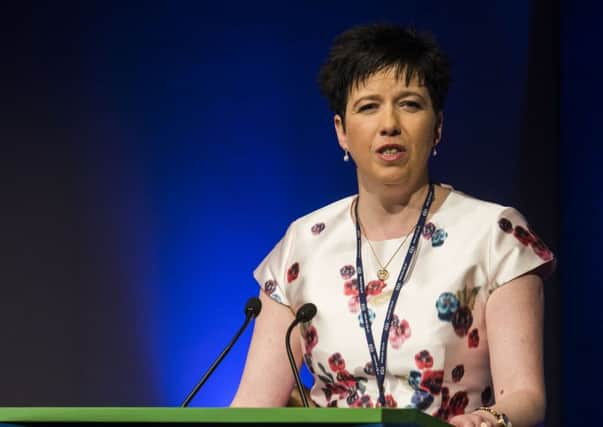Leader comment: A cry for help from Scotland's teachers


However, in recent years, Scottish education’s reputation and performance have slipped noticeably. To her credit, Nicola Sturgeon has recognised the problem and staked her political career on putting it right. “Let me be clear – I want to be judged on this,” she said in 2015. She specifically made the closing of the ‘attainment gap’ between pupils from wealthy and poor backgrounds one of her priorities, perhaps hoping we might talk once again of lads and lasses o’ pairts.
The people at the forefront of improving education are, fairly obviously, teachers, so their ability to do the job given to them and the state of their morale are among the most important factors.
Advertisement
Hide AdAdvertisement
Hide AdBut anyone looking for signs of hope in a speech today by Nicola Fisher, the outgoing president of the Educational Institute of Scotland, will be disappointed.
“What we do to teachers in this country is ridiculous. We underpay teachers. We overwork them. We tell them, incorrectly, that they are part of a failing system,” she is due to say. “We tell them that what they are doing in the classroom is insufficiently ‘excellent’. We cut budgets and constantly expect them to do more with less. And then we’re surprised that 40 per cent want to leave the profession. I’m actually surprised that figure isn’t higher.”
In the most recent OECD Pisa assessment, Scotland was ranked as “average” for reading, maths and science, continuing a downward trend since the year 2000. Among other countries, it was behind Ireland, Finland and Belgium for maths, Poland and Norway for reading, and Australia, Slovenia and Estonia for science. When the results were published in 2016, Education Secretary John Swinney admitted they made “uncomfortable reading” and promised to press ahead with “changes that are necessary to strengthen Scottish education”.
If teachers are as over-worked, demotivated and stressed out as Fisher says, it seems hard to imagine they will be able to somehow turn this situation around.
Similar rhetoric has been heard from the public sector since the 2008 financial crash, but one day we may come to regret ignoring the warnings implicit in her words.
